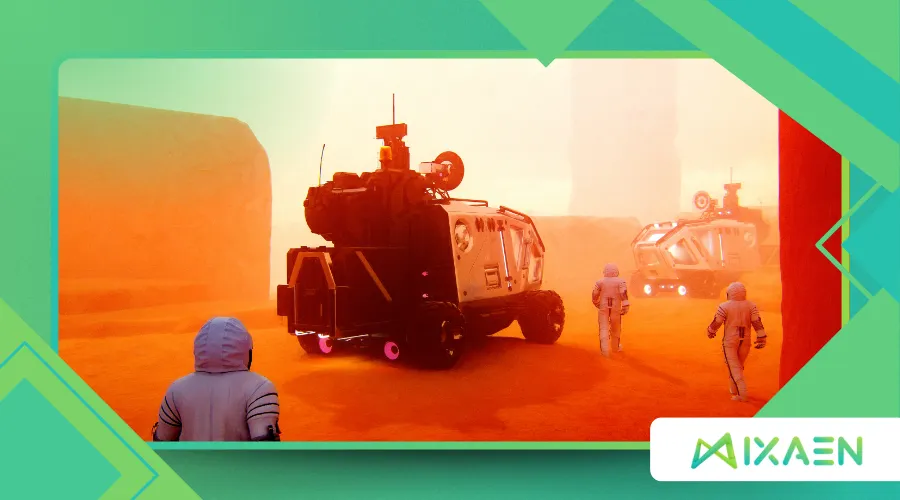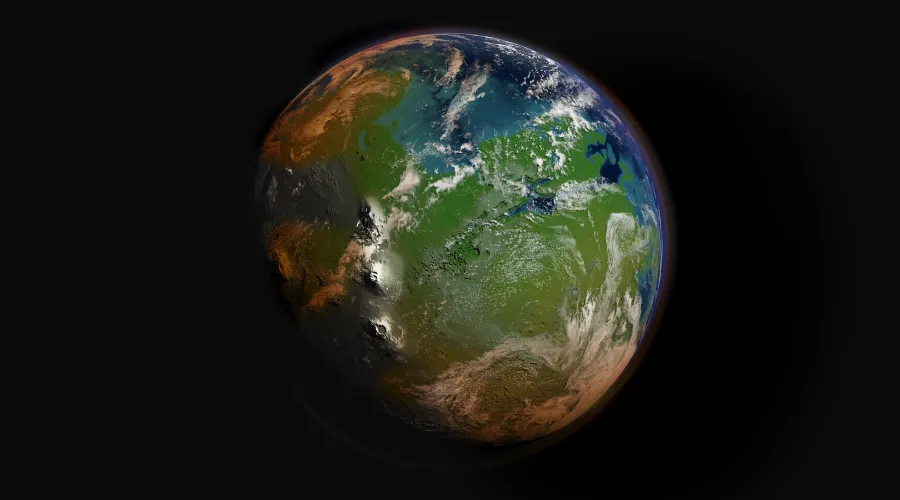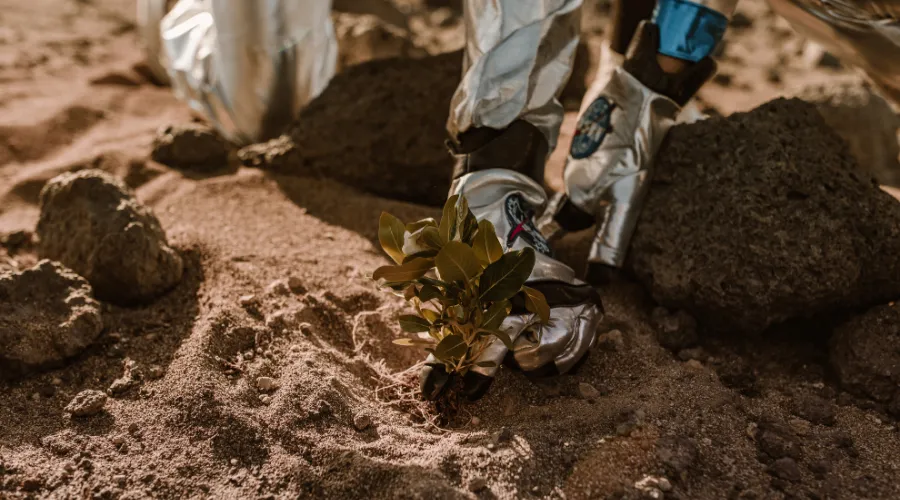The Ethics of Terraforming and Planetary Engineering

The ethics of terraforming spark a profound debate as humanity stands on the cusp of transforming alien worlds into habitable havens.
Anúncios
With advancements in space exploration accelerating, the dream of reshaping planets like Mars or Venus to support human life is no longer confined to science fiction.
Yet, this ambition raises complex moral questions about our role in the cosmos, the sanctity of extraterrestrial environments, and the consequences of playing planetary architect.
Should we alter entire worlds to suit our needs, or does such hubris risk unforeseen ecological and philosophical fallout?
This article dives into the multifaceted ethical landscape of planetary engineering, exploring its implications through diverse lenses and grounding the discussion in current scientific and moral frameworks.
As we venture into this uncharted territory, it’s essential to consider not only the technological capabilities we possess but also the ethical responsibilities that accompany them.
The conversation around terraforming challenges us to reflect on our values and the legacy we wish to leave for future generations.
The Promise of Terraforming: A New Frontier for Humanity
Planetary engineering holds transformative potential.
By altering a planet’s atmosphere, temperature, or surface conditions, we could create environments where humans might thrive without reliance on sealed habitats.
Mars, with its thin carbon dioxide atmosphere and frozen water reserves, is the leading candidate.
Scientists propose techniques like releasing greenhouse gases to warm the planet or using mirrors to reflect sunlight.
Such feats could render Mars a second home, easing Earth’s resource strain.
A 2023 study by the Planetary Science Institute estimated that Mars holds enough subsurface ice to create a global ocean 1.5 meters deep, offering a tangible resource for terraforming efforts.
Yet, the allure of a new Eden comes with a moral catch.
The act of reshaping a planet assumes humanity’s right to dominate other worlds, a notion rooted in anthropocentric views.
This perspective risks ignoring the intrinsic value of alien landscapes, which may hold scientific or even cultural significance for future generations.
The ethics of terraforming demand we weigh the benefits of human expansion against the cost of erasing a planet’s natural state.
The promise of terraforming invites us to dream of new beginnings, but it also compels us to question the morality of our ambitions.
Are we prepared to bear the responsibility that comes with such power?
For more insights on the potential of terraforming, visit the NASA Mars Exploration Program.
The Ecological Argument: Preserving Alien Worlds
Consider Mars’ rust-red plains, sculpted by eons of cosmic forces.
These landscapes, untouched by human hands, may harbor clues to the origins of life or the history of our solar system.
Terraforming could obliterate these records.
For instance, introducing Earth-based microbes to seed a new ecosystem might contaminate Mars, making it impossible to study potential native microorganisms.
The ethics of terraforming hinge on whether we prioritize human survival over the preservation of pristine extraterrestrial environments.
An original example illustrates this tension.
Imagine a mission to Venus, where engineers propose injecting sulfur dioxide to cool the planet’s scorching surface.
The process could erase unique atmospheric chemistry, potentially destroying evidence of past habitability.
Should we sacrifice such knowledge for a habitable Venus?
The analogy here is akin to clear-cutting an ancient forest to build a city—progress comes at the expense of irreplaceable heritage.
The ecological argument urges caution, advocating for minimal intervention until we fully understand a planet’s scientific value.
Preserving alien worlds is not just about safeguarding ecosystems; it’s about protecting our collective knowledge and heritage.
The decisions we make today will shape the understanding of our universe for generations to come.

The Anthropocentric Perspective: Humanity’s Right to Expand
On the other side, proponents argue that the ethics of terraforming align with humanity’s drive to survive and explore.
Earth faces overpopulation, climate crises, and resource depletion.
Terraforming offers a solution, extending our species’ footprint beyond a single, vulnerable planet.
Advocates point to historical precedents—humans have long reshaped Earth’s landscapes through agriculture and urbanization.
Why should Mars be different?
If we can transform a barren world into a thriving colony, the argument goes, we have a moral duty to secure humanity’s future.
Take the case of a hypothetical Martian colony in 2075.
Engineers deploy solar mirrors to melt polar ice caps, creating liquid water for agriculture.
The colony supports 10,000 settlers, easing Earth’s population pressures.
This scenario underscores the potential of terraforming to solve existential challenges.
Yet, it also raises questions about equity.
Who decides which humans colonize these new worlds?
The ethics of terraforming extend beyond science to issues of access, privilege, and global fairness.
The anthropocentric perspective highlights the urgency of our situation but also invites scrutiny regarding who benefits from these advancements.
It challenges us to consider the implications of our actions on marginalized communities and future generations.
+ The Forgotten Women Who Helped Launch Mankind Into Space
The Risk of Unintended Consequences
Planetary engineering is not a precise science.
Altering a planet’s climate could trigger cascading effects we cannot predict.
For example, warming Mars might release unknown subsurface gases, creating a toxic atmosphere.
A 2024 simulation by NASA’s Jet Propulsion Laboratory found that terraforming Mars could take 200–1,000 years, with a 15% chance of catastrophic atmospheric instability.
The ethics of terraforming require us to grapple with these uncertainties.
Are we justified in risking a planet’s stability for uncertain gains?
This uncertainty mirrors the ethical dilemmas of early nuclear testing.
Just as scientists in the 1940s could not fully predict radiation’s long-term effects, we lack the foresight to anticipate terraforming’s full impact.
The precautionary principle—acting only when risks are well understood—clashes with the bold ambition of planetary engineering.
This tension demands rigorous oversight, perhaps through international regulatory bodies akin to those governing Earth’s climate policies.
The risk of unintended consequences underscores the need for a cautious approach to terraforming.
As we push the boundaries of our capabilities, we must prioritize the safety and integrity of the environments we seek to modify.

Cultural and Philosophical Dimensions
Beyond science, the ethics of terraforming touch on deeper philosophical questions.
What does it mean to “own” a planet?
Indigenous perspectives on Earth offer a cautionary tale.
Many cultures view land as a shared resource, not a commodity to be reshaped.
Applying this to Mars, terraforming might be seen as a form of cosmic colonialism, imposing human values on a world that exists independently.
The ethics of terraforming challenge us to consider whether we are stewards or conquerors of the cosmos.
Moreover, terraforming raises existential questions about humanity’s identity.
If we create Earth-like worlds, are we merely replicating our flaws—pollution, inequality, conflict—on a galactic scale?
A thought experiment: if an advanced alien species terraformed Earth to suit their needs, would we accept their right to do so?
This question forces us to confront our assumptions about dominance and entitlement in the universe.
Cultural and philosophical dimensions of terraforming prompt us to reflect on our values and responsibilities.
They remind us that our actions in space are not just about survival but about our ethical stance as a species.
++ What If the Apollo Missions Happened with Today’s Technology?
The Role of Governance and Global Cooperation
Terraforming’s scale demands global coordination.
No single nation or corporation should unilaterally alter a planet.
The Outer Space Treaty of 1967, which declares space a shared resource, provides a framework but lacks specifics on planetary engineering.
The ethics of terraforming call for updated international laws to ensure equitable decision-making.
Who gets a say—wealthy nations, private companies like SpaceX, or underrepresented communities?
A balanced approach might involve a UN-led council to oversee terraforming projects, ensuring transparency and accountability.
Public engagement is equally critical.
The ethics of terraforming are not just for scientists or policymakers to debate; they belong to humanity as a whole.
Public forums, educational campaigns, and inclusive dialogues can shape a consensus on whether and how to proceed.
Engaging diverse voices ensures that terraforming reflects collective values, not just those of a privileged few.
The role of governance in terraforming emphasizes the importance of collaboration and inclusivity.
As we explore new worlds, we must ensure that the voices of all humanity are heard and respected.
Balancing Ambition with Restraint
The ethics of terraforming ultimately boil down to a question of balance.
Human ambition drives us to explore and innovate, but restraint ensures we do so responsibly.
Terraforming could secure our species’ survival, unlock scientific discoveries, and inspire generations.
Yet, it risks irreversible damage to alien worlds and our own moral compass.
The challenge lies in navigating this frontier with humility, foresight, and a commitment to ethical rigor.
As we stand at this cosmic crossroads, one question lingers: Are we ready to wield the power of gods, or will our ambition outstrip our wisdom?
The ethics of terraforming demand that we answer not just with science, but with soul.
Finding the right balance between ambition and caution will define our legacy as space explorers.
Our choices today will shape the future of humanity and our relationship with the cosmos.
